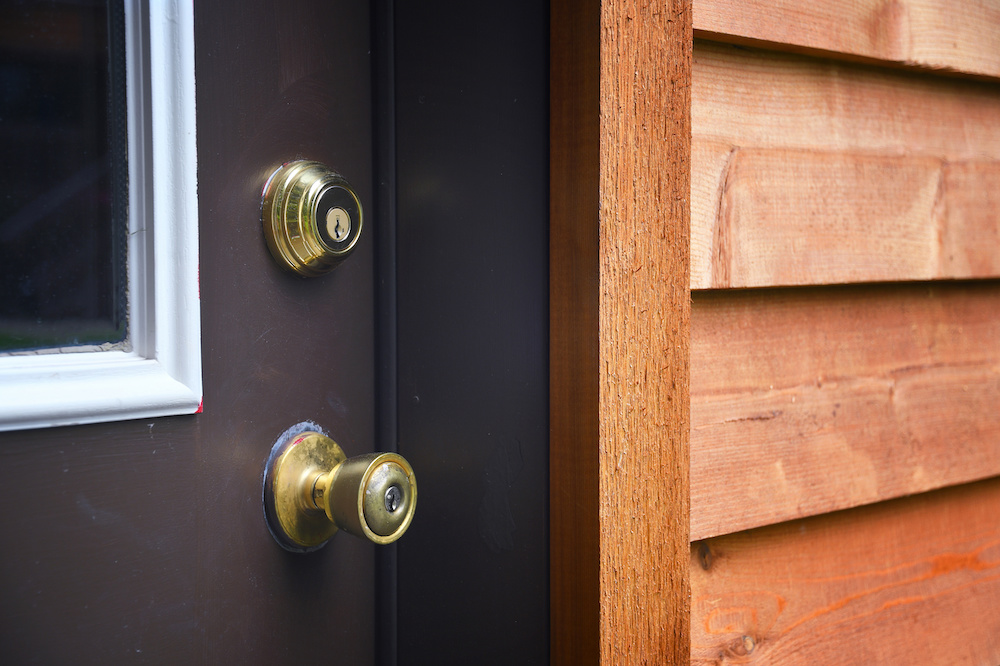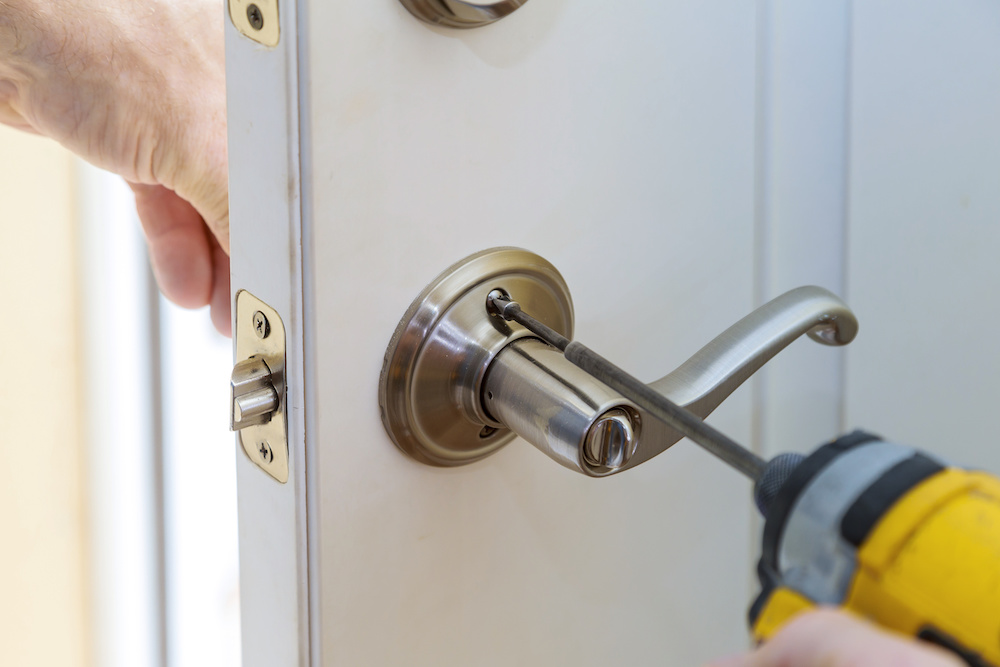Understanding your states locksmith requirements can be… confusing… to say the least. It comes down to perception in a lot of cases. We as locksmiths have a skill set that is unique, that is scary to some, and that is highly overhyped. When people talk about locksmiths, they generally think of one thing, and one thing only. Can you guess?
I bet you can.
Lock Picking. Picking locks scares people because locks are for security, and if you are able to get around that, they feel insecure. It all comes back to fear. Now, I’m not saying that’s a bad thing, but I am saying it is something you will need to keep in mind while moving forward.
Fear, Fraud, and Filching
Locksmith regulations are passed for one of two main reasonings: Fear of Lock Picking, and Fear of Fraud.
You can tell the difference by the requirements placed on the locksmiths. Heavy education requirements, along with experience and background checks, generally tells you the greatest fear in that state is fraud. Heavy restrictions on lockpick usage, and different mentions about burglary tools and bump keys generally tell you the fear is about lock picking.
Either way you look at it, it comes down to a core fear, and one that I think we can all respect. Fear of being taken advantage of.
Understanding this fear is at the core of all the regulations can greatly help you in your locksmithing career. Keep it in the back of your mind while working with clients, while dealing with regulators, and while learning. Keep it as a core tenant of your beliefs. A locksmith has a fear inducing skill set that, at times, is not only wanted, but absolutely required. One might call it a necessary evil during those times.
Locksmith Requirements For Your State
Because each state is different, I’ve compiled every state’s locksmithing requirements and put them into an easily searchable list. At the core, though, the states break down into four different categories.
- No Regulations
- Mild Regulations
- Regulated Market
- Extremely Regulated Market
Extremely Regulated Markets
New Jersey clearly has the strictest locksmith requirements of any state in the US. That said, they are followed closely by: California, Illinois, Maryland, Tennessee, Alabama, Virginia, and Texas. Beyond that, New York City and Miami-Dade, Florida also have extremely regulated markets.
Tennessee also happens to be the only state in the country that clearly states that lockpicks are illegal unless you are a licensed locksmith. Quite a few other states have legislation that declares lockpicks as prima facie evidence against you, while others have legislation that only makes it clear that if you are caught with them on you while breaking and entering they can cause your charges to be elevated.
Regulated Markets
Because you do not have to jump through so many hoops to become a locksmith in these states, “regulated markets” are rated as easier markets to enter.
There are far fewer markets here: Oregon, Oklahoma, North Carolina, and Connecticut all fit within this range.
Mildly Regulated Markets
Mildly regulated markets are markets that either have very little regulation, or no regulation while making it clear what a locksmith is in that state.
These states are: Alaska, Nevada, Nebraska, and Louisiana
Unregulated Markets
The rest of the country falls under the unregulated market category. That doesn’t mean you don’t have to get a locksmith license in these states. It does mean you don’t have to get one at the state level.
Every area is different, and with thousands of individual regions in the world, we can’t track them all for you. Yet.
Understanding Your State’s Locksmith Requirements
Let’s break down an example. New Jersey, being the most regulated state, seems like a great one to start with.
First, head over to the New Jersey locksmith requirements page and read over everything that it asks. Then come back here and I will break it down for you.
The Background Check
New Jersey does require a background check, which means a lengthy licensing process. That means you’re not going to go out tonight and pick up a lockpick set and start marketing yourself as a locksmith tomorrow. They want to make sure if this is something you plan to do, that you are going to be in it for the long haul.
So let’s break down what that means.
Good Moral Character
Sure, we might as well start off with confusion, right?
Lawyers have been arguing about what good moral character means since lawyer was a profession that existed. It is an extremely subjective term, which means it is up to the whim of the person doing the judging whether or not you fall under this heading. I like to say if you can tell your Grandmother everything you do without being embarrassed, you probably fall under this category.
Convictions
I think the more important aspect of the background check are the convictions. These are the evidence of your moral character. In New Jersey, you can’t have had a conviction of any first, second or third degree crimes within the last 10 years. And frankly, given the Good Moral Character clause, crimes even 10 years or more can come back to haunt you, depending on what they are, and who is doing the application process.
Fingerprints
Either way, fingerprints will be required, which means you will need to show up in person to do at least part of your application process.
Education Requirements
The education requirements are why New Jersey is considered the hardest state to qualify for. First of all, they require a high school diploma, or equivalent. That would be fine, but then they tack on multiple education units as listed in Title 13 of the New Jersey Administrative Code.
You then have to complete 5,040 hours of “practical hands-on experience” in provisioning of locksmith services or you need to have completed a two-year apprenticeship program that was approved by the Bureau of Apprenticeship and Training of the United States Department of Labor.
You also need to have completed two hours of training in the Barrier Free Subcode, N.J.A.C 5:23-7, two hours of training in the N.J.A.C 5:23, exclusive of the Barrier Free Subcode, two hours of training in the Americans with Disabilities Act Code, 36 CFR 1191, two hours of training in industrial safety, and two hours of training in New Jersey law and rules governing the provision of burglar alarm, fire alarm, and locksmithing services.
But wait! There’s more!
You also need to have successfully completed the locksmithing examination defined in N.J.A.C 13:31A-2.3.
In short, you’re going to be doing a lot of learning in New Jersey before you can even think about selling your services as a locksmith.
After all of that state mandated education, they’re going to just hand you the license, right?
Wrong.
Fees
The other aspect of becoming a locksmith that a lot of people don’t take into consideration is the cost. In New Jersey, there is a $150 non-refundable application fee. That’s just to apply. After that you have to pay the $120 license fee, plus some additional fees that vary.
Now, for their part, all or part of these fees can be waived for honorably discharged armed forces officers.
Lock Picking Tools
The one area that New Jersey is somewhat lenient on their locksmith requirements is the actual use and possession of lock picking tools. Lock picking tools are allowed, as long as you are not using them to break other related laws.
In Conclusion
Starting a locksmithing business isn’t something you should do on a whim. It is, at best, an expensive hobby. At worst? Doing it wrong can tarnish your reputation, and even get you a hefty fine if you aren’t properly setup. That’s why understanding your state’s locksmith requirements is so important. It is important for your safety, but it is also important for the safety and security of your potential customers.
The people you will be doing work for are not just job orders, or ticket numbers. They’re people. People who are going to be scared. People that are going to be impatient. And yes, even people that are going to be rude. But they are all people. It is as important to keep that in mind as it is to understand what your state’s locksmith requirements are.



